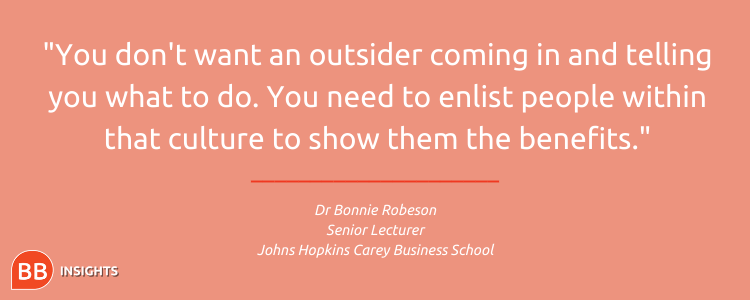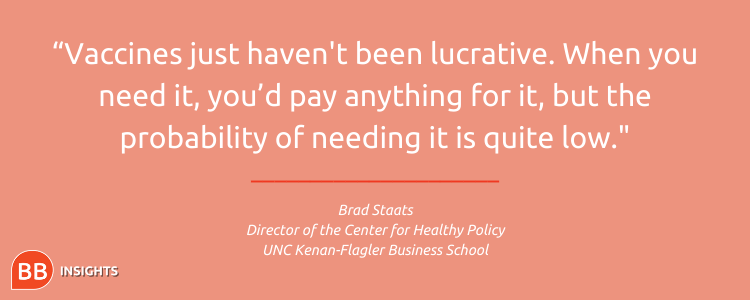Since the first COVID-19 vaccine was designed the speed at which other vaccines have been developed, approved, and manufactured is astonishing.
There are 66 vaccines in clinical trials, two have been approved for full use, and eight for early or limited use. The US has administered 23 million vaccinations at the time of writing, China around 15 million, and the UK just over seven million. Israel leads the race per capita, having vaccinated around a third of its population.
But that’s just the start. On a planet of nearly eight billion people, what challenges lie in wait for the most expansive vaccination program in history?
The logistical challenges of distributing a COVID-19 vaccine
There are four key logistical challenges facing vaccine distribution.
1. Supply and demand
One fundamental rule of manufacturing and distributing any product is making sure that supply meets demand. When nearly eight billion people live on the planet, where do you even start with a global vaccination program?
“There’s far more demand than supply,” stresses Ho-Yin Mak, associate professor in management science at the University of Oxford’s Saïd Business School. “It’s never happened that we’ve had to distribute the same product to everyone in the world, aside from food and water. Even that is sourced and produced locally.”
2. Urgency
The manufacturing and distribution of a vaccine needs to happen at an unprecedented speed: the longer countries wait for vaccines, the higher their death toll and the greater the long-term economic damage caused by lockdowns.
Pharmaceuticals, however, remains one of the most regulated industries in the world. Even after vaccines are manufactured, each batch must be quality checked and approved before it can leave the lab.

©Joe_McUbed
3. Storage
The design of different vaccines raises significant challenges. Each vaccine has different characteristics, from the way it works to the way it’s stored. Before use, the Pfizer-BioNTech vaccine needs to be stored at -70C and the Moderna vaccine between -25C-and -15C.
This is a significant challenge for rural areas, particularly in developing countries that have weaker healthcare infrastructure and limited access to ultra-low freezer storage.
Ho-Yin believes the vaccine co-developed by his own university, Oxford, could offer a solution, as it only requires regular refrigeration. “Where you can deliver milk, you can deliver our vaccines,” he asserts.
4. Materials
Even after a viable vaccine has been developed, Bonnie Robeson, senior lecturer in operations management and health business analytics at Johns Hopkins University’s (JHU) Carey Business School, points to the challenge of material requirement when planning vaccine rollout.
This includes the vials, cases, and refrigerated trucks needed for distribution, to the syringes, antiseptic wipes, and personal protective equipment (PPE) needed to administer the vaccine. Then there’s the labor—people to schedule appointments, to contact recipients, and to deliver the shots.
“You have to work out exactly what you need and work backwards,” Bonnie says.
Ethical considerations and challenges
Even with a smooth supply chain there are challenges to vaccine rollout that go beyond logistics. Governments and healthcare providers face several important ethical challenges.
While wealthier, mostly Western countries pull ahead in the vaccine race, developing countries are falling behind. So, how do you make sure that vaccines are fairly distributed?
“The problem is you’re having to ask countries to forgo supply to send it somewhere else,” explains Brad Staats, faculty director of the Center for the Business of Health at the University of North Carolina’s Kenan-Flagler Business School. “Bodies like the World Health Organization (WHO) are working on this—but they’re only advisory.”
Katie Greene from Duke University’s Margolis Center for Health Policy explains that there’s tension between striving to get vaccine shots to as many people as possible and doing it in a targeted way that doesn’t leave behind certain historically marginalized populations. In some areas in the US, black Americans are vaccinated at a third of the rate of white Americans.

Then there’s the challenge of getting around the spread of COVID-19 misinformation that has added fuel to the fire of so-called ‘anti-vaxxers’. Suggestions of a ‘vaccine passport’, essentially making it mandatory to be vaccinated, raise several moral questions.
Bonnie from JHU believes that communication is key to solving this. “Every culture will have its own response about whether they’ll participate,” she says. “Crucially, you don't want an outsider coming in and telling you what to do, so you need to enlist people within that culture to show them the benefits.”
Lessons for future pandemics
When the world went into lockdown in March 2020, general preparation for a global pandemic was clearly lagging. Investing in vaccines is central to this.
“Vaccines just haven't been lucrative. When you need it, you desperately need it and you’d pay anything for it, but the probability of needing it is quite low. So how does it make sense to invest capital there?” Brad from UNC asks.
The speed at which COVID-19 vaccines were developed shows what is possible when the right emphasis and investment is there. This is also helped by the spirit of collaboration and open science (when scientific research is made public for common purpose) in vaccine development, which Brad hopes will continue going forward.
There’s also a strong lesson about the benefits of a united or national healthcare system. Bonnie from JHU believes that the US struggled because states were left to compete for the same resources. “If you don't have a government-run, overarching system, it's harder to implement these plans,” she asserts.
With vaccination well under way and accelerating around the world, there is reason for optimism. But the challenge ahead—to help supply meet demand, to persuade people of the vaccines’ efficacy, and to reach populations who need protection most—looms large.
Read next:
How Better Healthcare Management Could Prevent A Future Pandemic
BB Insights explores the latest research and trends from the business school classroom, drawing on the expertise of world-leading professors to inspire and inform current and future leaders




